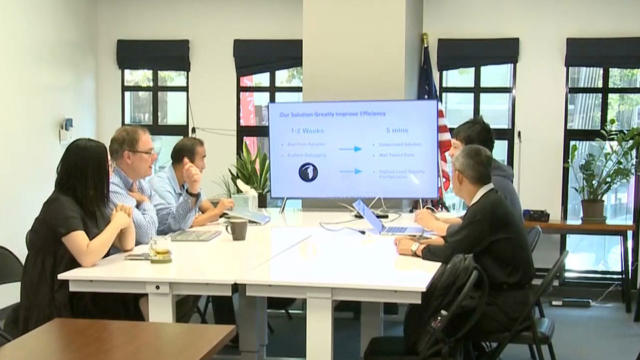The Trump administration has already slapped 25 percent tariffs on $34 billion worth of Chinese tech goods. But some of the items on the list include products heavily enjoyed by a younger generation. Caught in the crosshairs of the trade war– U.S. smart tech that’s manufactured in China.
CGTN’s Mark Niu reports.
Electric Scooters, smart bulbs and smart thermostats all face a 25 percent tariff. At the age of 18, Tiffany Zhong became a venture capitalist. Now at 21, she runs a company that gathers market intelligence on teens.
“We grew up on these smarter products making our lives so much easier and so much faster,” Zhong, CEO of Zebra Intelligence said. “These tariffs will impact kind of which products we will continue buying if prices goes up, which is a huge concern for companies and consumers.”
Another popular trend among the young that could take a hit-vaping devices. China makes the vast majority of what are called vape box mods – which actually have computer chips in them. Those devices greatly reduce the cost of vaping.
“It’s a little concerning that it could impact the industry more so on the hardware side of manufacturing vapes or in the case of e-cigarettes- mods as we call them,” said Cameron Dingler, Manager of San Jose Vape. “Just because a lot of the hardware is manufactured in foreign countries.”
But in Silicon Valley, numerous companies rely on manufacturing in China to bring down production costs in order to take on the competition. And that can be especially important for startups. Silicon Valley-based Amino Capital has invested in more than 100 startups. That includes being the first investor in Candy House, which created Sesame, a device that can be placed on almost any type of lock to turn it into a smart lock.
Candy House is hoping to move manufacturing to China but uncertainty caused by the tariffs is making the decision harder.
“For them to be more competitive, it’s very important for them to lower the cost,” Larry Li, Founding Partner of Amino Capital said. “And if the companies can manage the costs really well, they can grow really well. And they will increase the staff in U.S., in Taiwan, and China.”
Though Li is optimistic about the trade dispute being resolved, he says in the meantime, both countries lose out. “In the short-term, definitely impact China more, but over the long-term the US benefits the most from the global economy and the global trade,” said LI. “So over the long term it’s going to impact the U.S.”
Li believes the tariffs will force China to look for other markets, hurting the U.S. in the long haul by only making it more isolated.
 CGTN America
CGTN America

